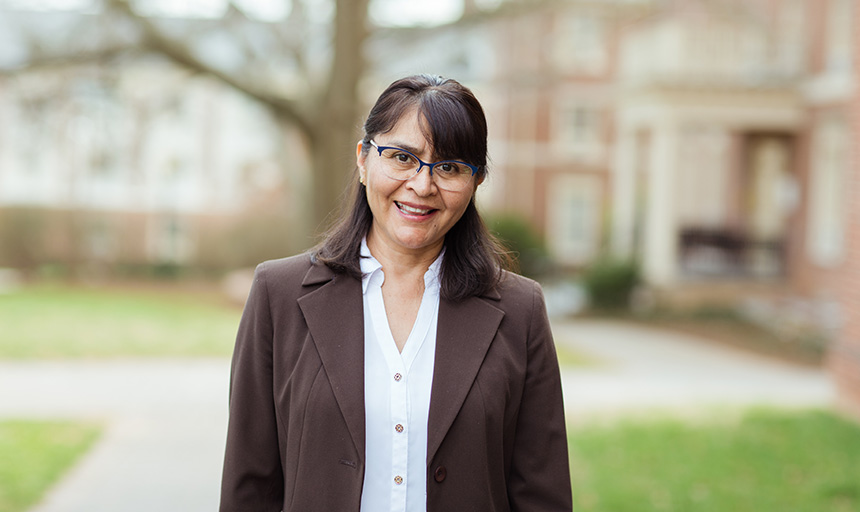Roanoke professor picked for coveted Fulbright
April 13, 2023

The prestigious and competitive Fulbright Scholar Program has tapped Professor Dolores Flores-Silva for a 2023-2024 fellowship that will allow her to pursue a teaching and writing project in Mexico.
Flores-Silva, an educator for nearly 30 years and Roanoke College’s first tenured Hispanic professor, will devote the fall semester to teaching at a Mexican university where she’ll offer a curriculum designed around Chicano literature; racial history and constructs in the U.S. and Mexico; and other themes that explore issues of identity, culture and belonging across the two neighboring nations.
“A course such as this challenges us to build better bridges and to cross gulfs between us, internally and across nations,” Flores-Silva wrote in her proposal. “As a scholar from both Veracruz and Virginia, teaching such a course in Mexico excites me and encourages me to be an ambassador of both of my nations.”
Flores-Silva grew up in Veracruz, a coastal city along the Gulf of Mexico, and has spotlighted the rich history and culture of the Gulf states region throughout her career in both books and documentaries. She joined Roanoke’s faculty in 2001 and leads courses in the Spanish program and the Latin American & Caribbean Studies concentration.
RELATED: Gulf Gothic: Mexico, the U.S. South and La Llorona’s Undead Voices
RELATED: Professor's bilingual one-act play performed this month at Miami theater
Her fellowship was awarded through the Fulbright-García Robles U.S. Studies Chair program, an academic exchange established to strengthen international understanding and cooperation through education, student mentoring and scholarly work. The details of her trip, including the Fulbright partner school that will host her, will be finalized over the summer.
In addition to teaching, Flores-Silva plans to dive into a new book project carrying the working title, “Fiestas of the Split Place: Millennial Writing from Our Gulf Shores.” The book will examine the modern literature and social-political calendar traditions of the Gulf rim through the lens of its complex history as a place divided between nations and cultures.
Kathy Wolfe, Vice President of Academic Affairs and Dean of the College, said the Roanoke community is excited to see Flores-Silva's work honored with this opportunity.
“Fulbright scholarships are catalysts of connection, created to build relationships and improve understanding across differences,” Wolfe said. “These goals are central to the kind of humanistic scholarship and interactive pedagogy in which Dr. Flores-Silva excels as a member of the outstanding faculty at Roanoke College. Her writing and teaching are shining examples of the humanities in action, and the College is so proud that Fulbright has recognized that.”
As she prepares for her trip, Flores-Silva said she’s looking forward to expanding connections between Roanoke and Mexico. She’s previously led Roanoke students on trips to Yucatan and has served as a mentor for international students who join Roanoke’s campus.
The Fulbright award is an affirmation of the curriculum and scholarship painstakingly developed by Roanoke’s Latin American programs, Flores-Silva said. The courses she’ll teach during her Fulbright semester were first designed and taught by her at Roanoke. “I am thrilled to see that everything we have worked on over the years is being acknowledged,” she said.
Flores-Silva's courses move between literature, films, history and politics. Her approach to the classroom is both dynamic and interdisciplinary. That philosophy aligns well with Fulbright’s aim of spurring a vibrant cultural dialogue and exchange of ideas.
“My teaching includes but moves well beyond traditional lecture formats as I seek to turn class into an active workshop wherein students practice skills of critical reading, strong writing, and discursive conversation and presentation. Students are called to participate fully in class and—at the upper division—to prepare themselves to conduct research,” Flores-Silva said. "My own style is somewhat performative—in Mexican or Veracruz style—as I try to bring students out of their protective shells and into dialogue with the material and each other.”